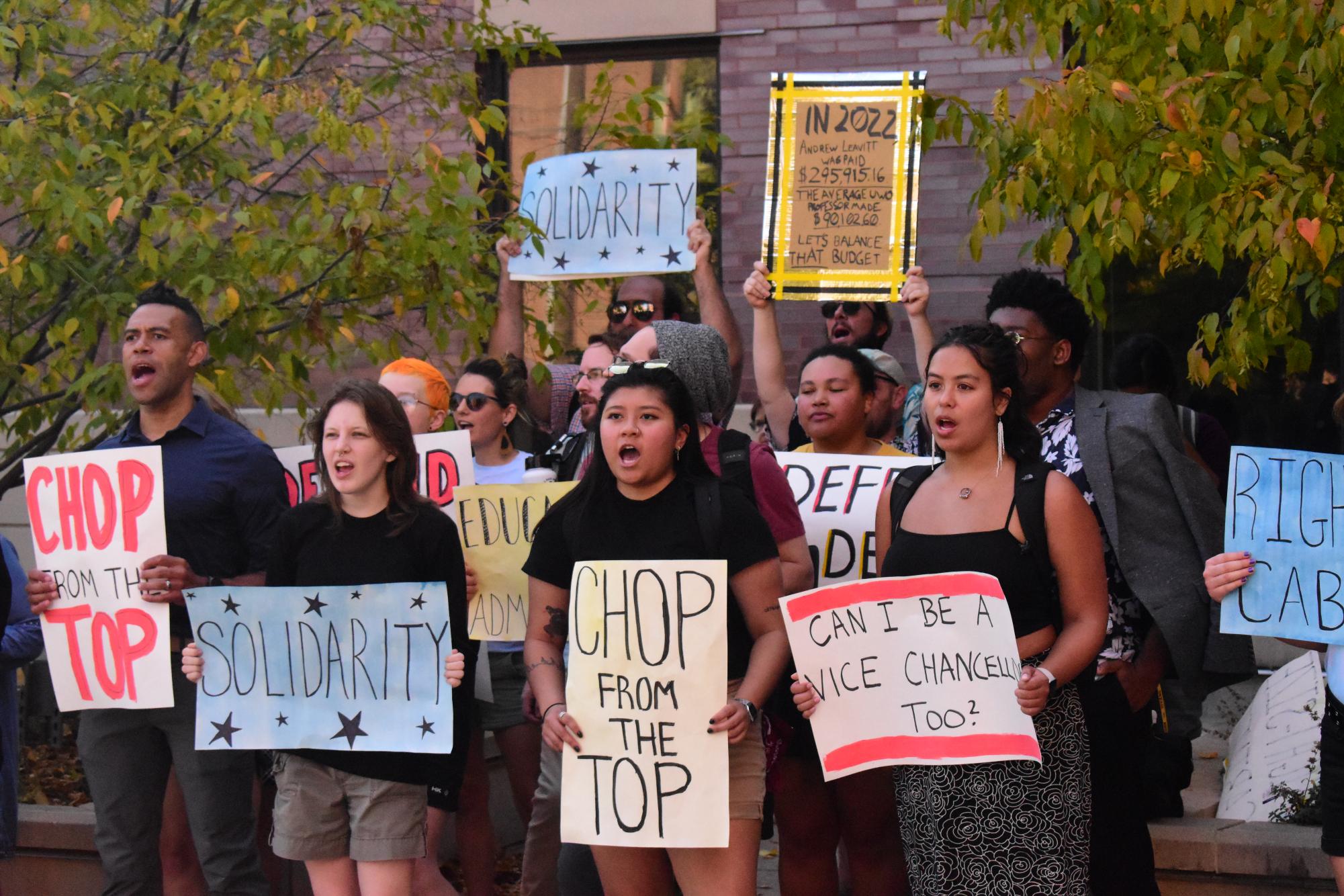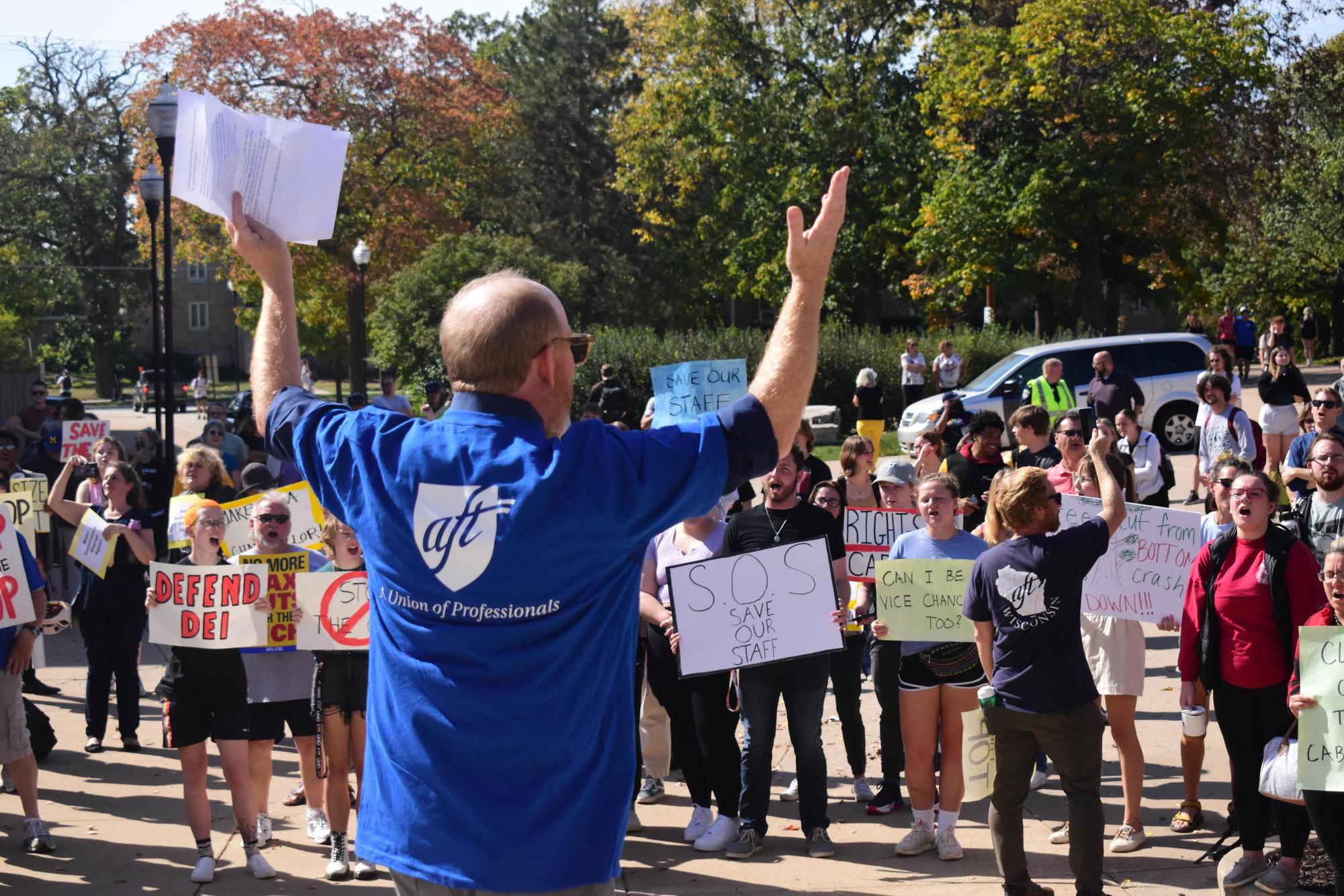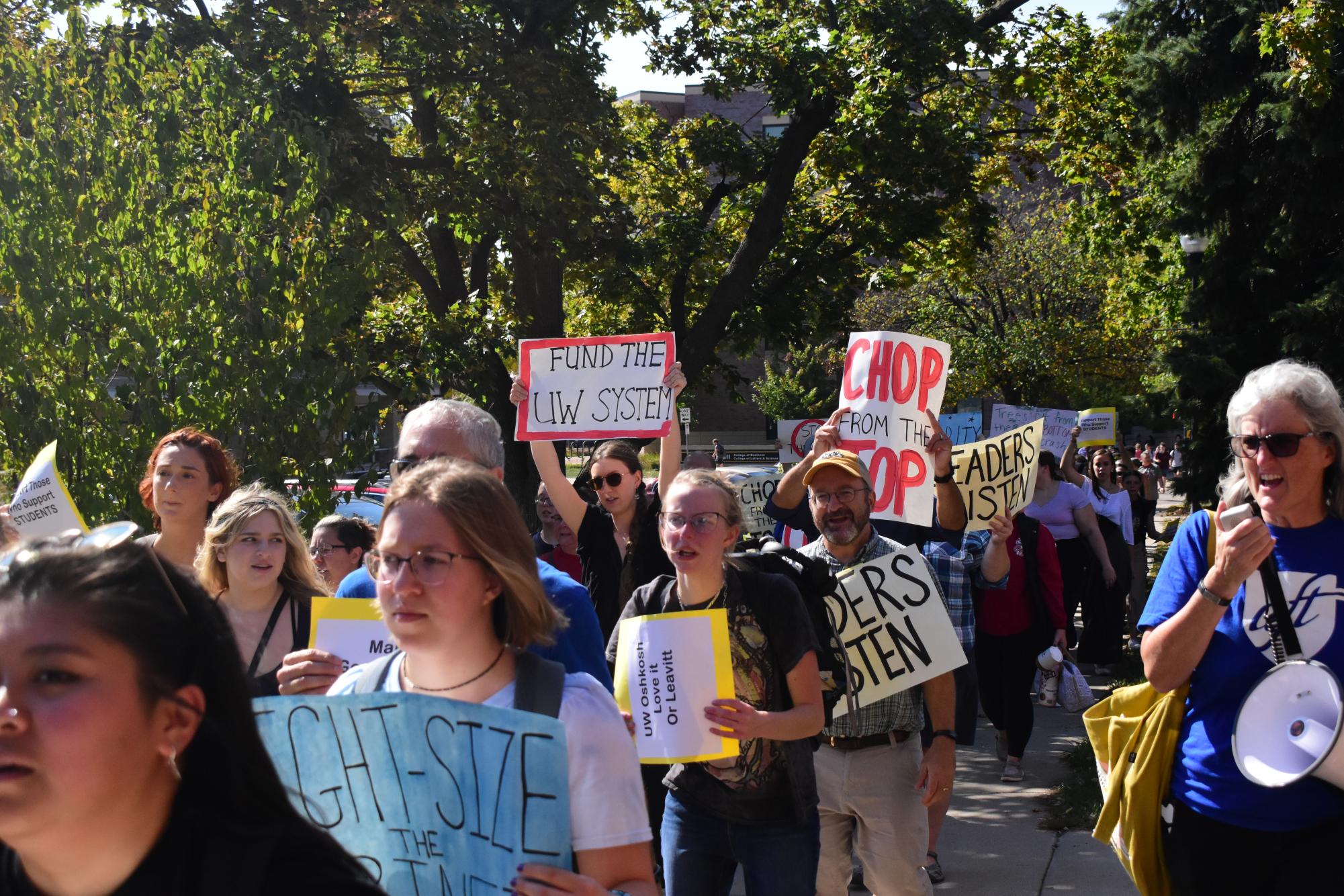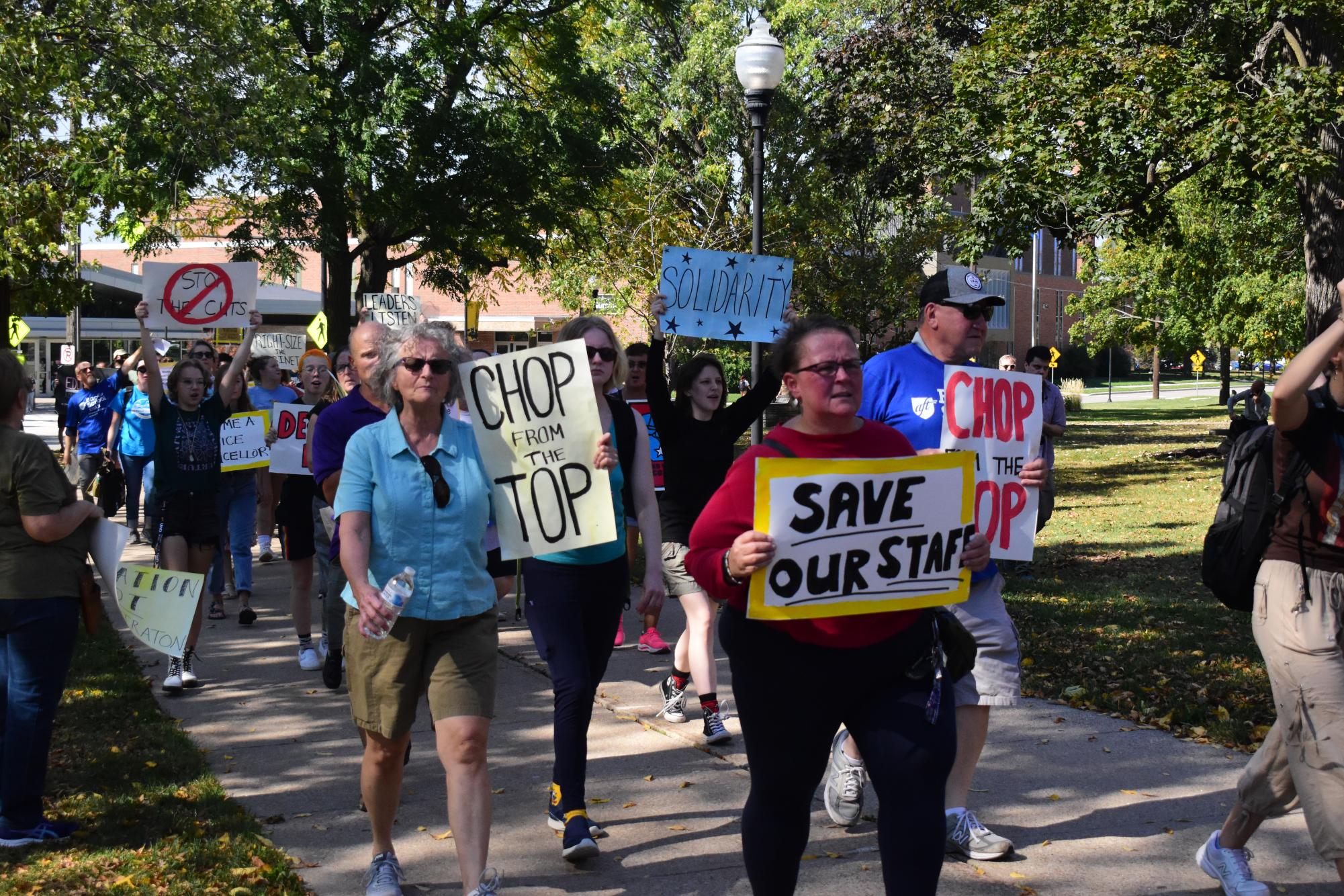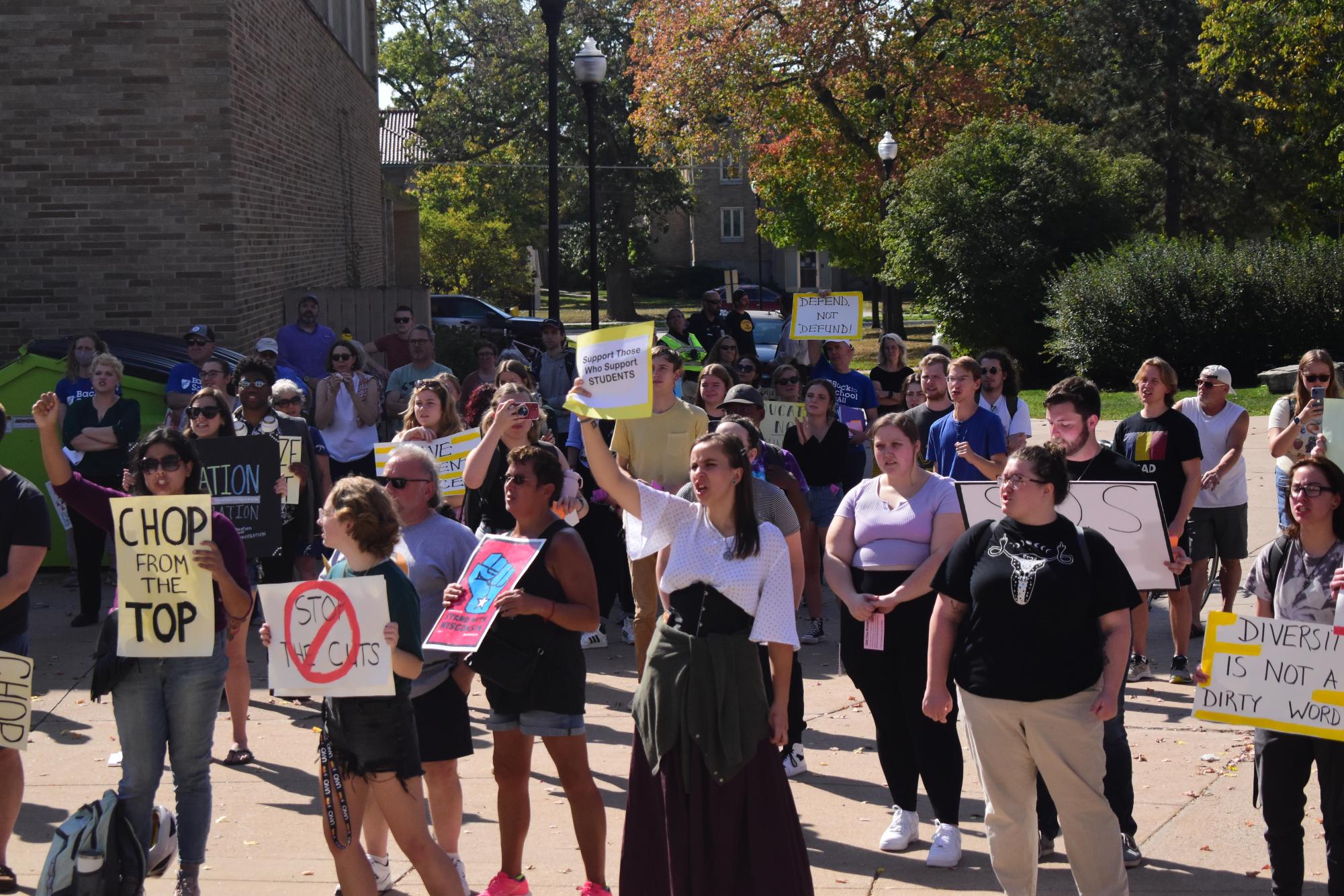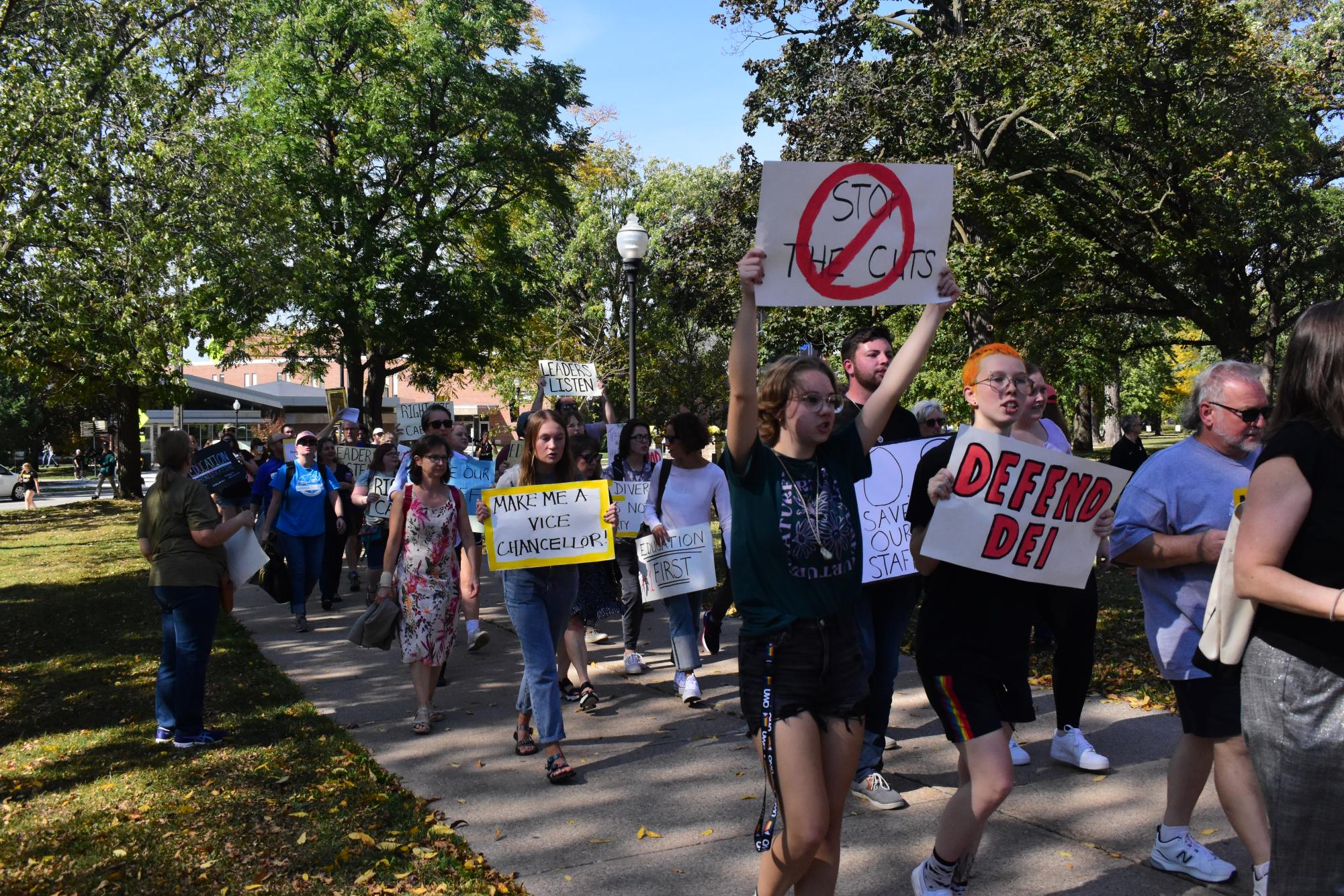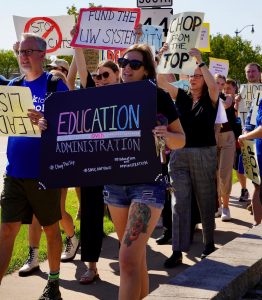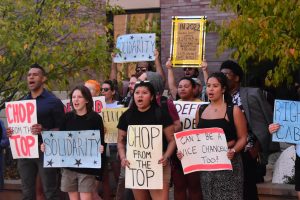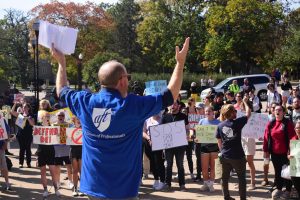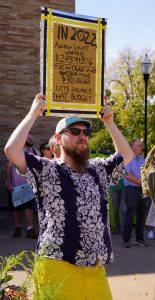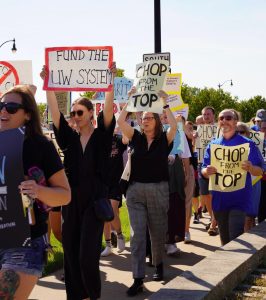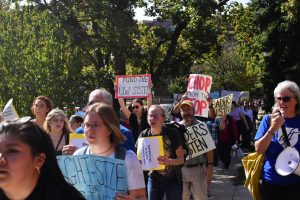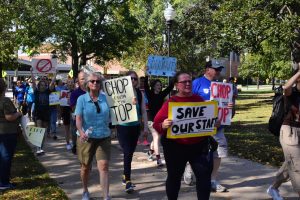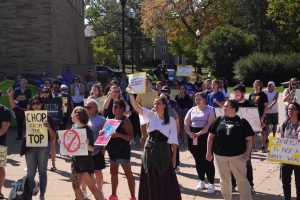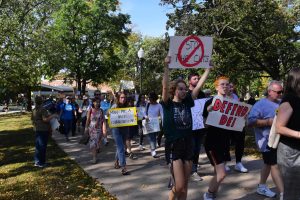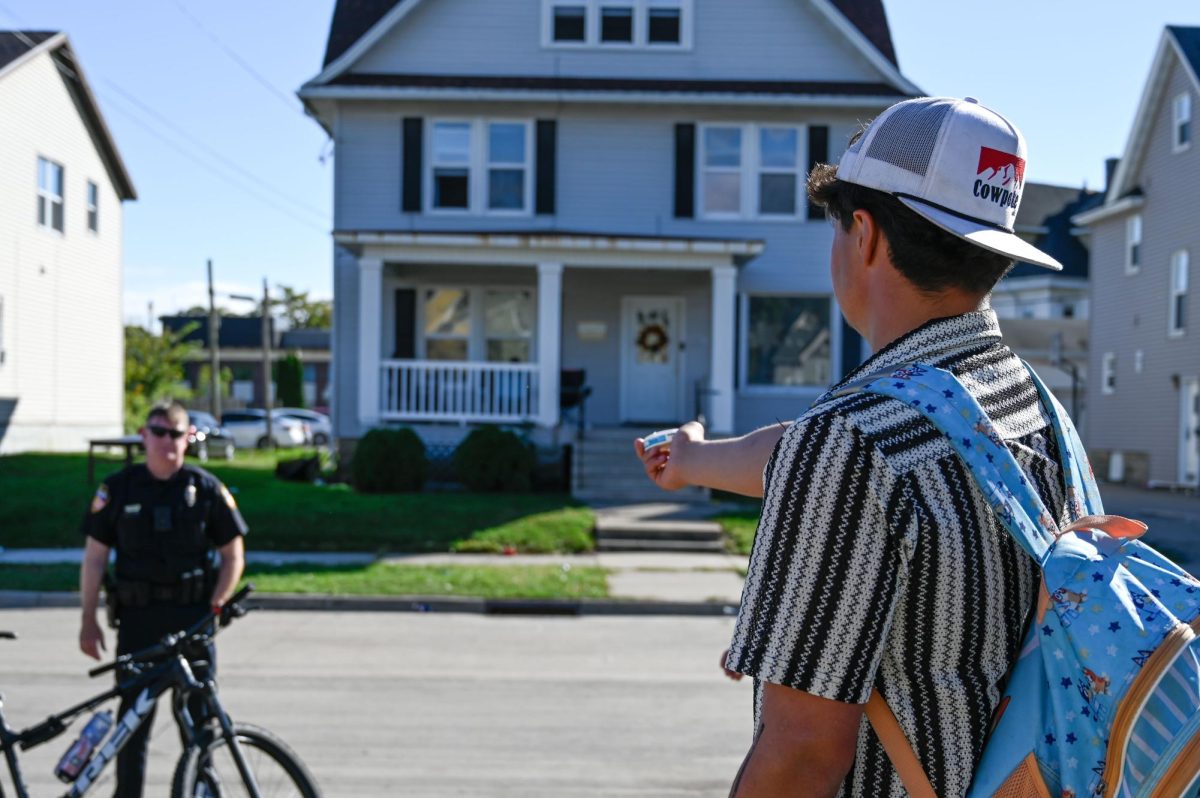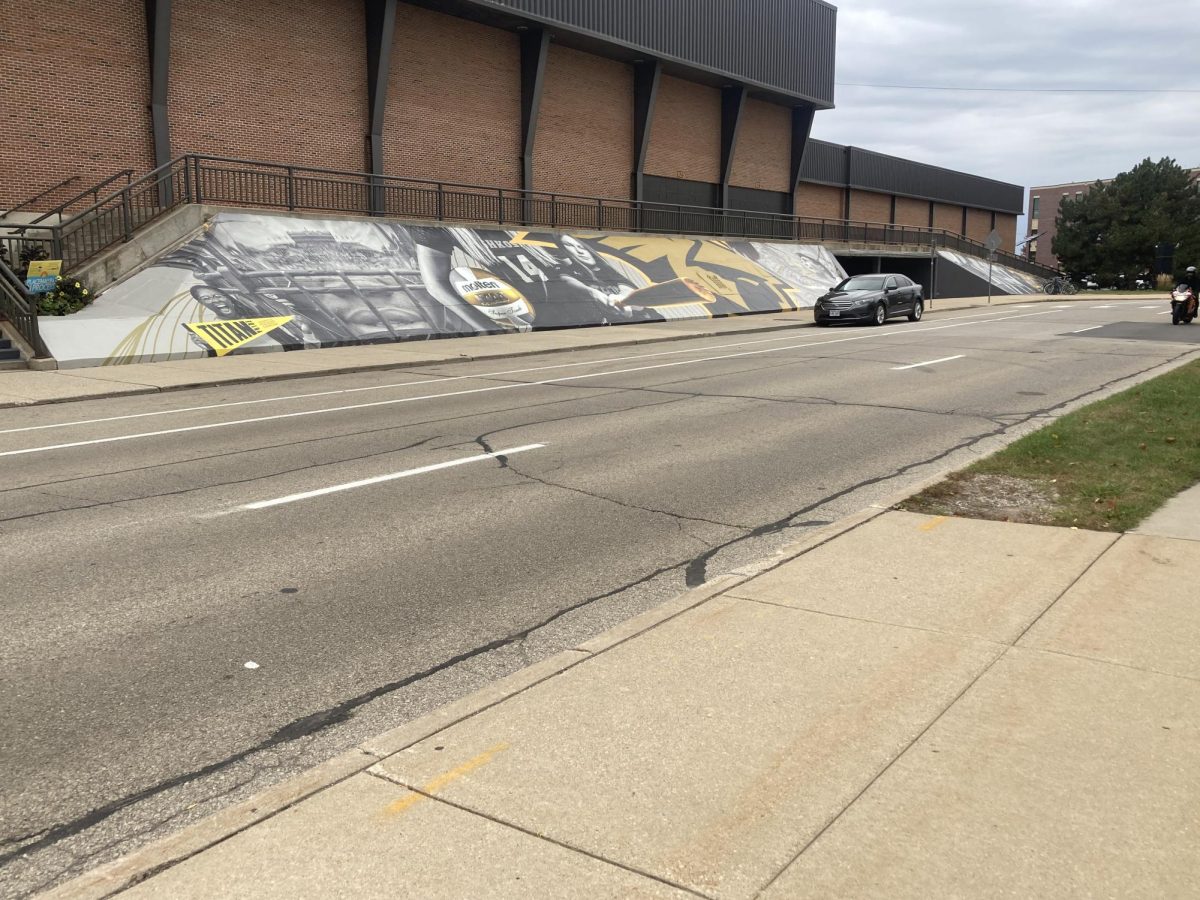UW Oshkosh staff and faculty, as well as community members and people from other UW System schools, participated in a walkout protest today over the university’s response to its $18 million deficit.
The protesters criticized the university’s decision to lay off around 200 staff in the coming weeks and emphasized the effects that furloughs and department restraints have on the quality of education.
An online petition garnering over 500 signatures states that the university’s plan to curb the deficit “was developed with minimal input from faculty and staff, the frontline workers that carry out the university’s mission of providing quality education for the people of northeast Wisconsin.”
The petition also laid out eight expectations for the university, with the option for signees to forward the list of expectations to UWO Chancellor Andrew Leavitt.
The expectations included cutting administrative position salaries over instructional and student support positions’ salaries, increased support for instructional academic staff, more clarity regarding future workloads and working conditions and “viable part-time options” for faculty who want lower than full-time status.
In a response letter, Chancellor Leavitt and Provost Edwin Martini stated that increased teaching loads should only be seen as a temporary measure.
“It is my expectation that we will have our academic structure and workload fully reset and realigned no later than the end of the spring 2025 semester,” the letter stated.
But Sociology and Environmental Studies Professor Paul Van Auken said that, while the administration responded to all of the points listed in the expectations letter by the deadline, he is still skeptical.
“There’s no way to know whether most of what they say will actually be followed through on,” he said.
In their response letter, UWO’s administration denied the possibility of student and faculty government getting a seat in the administration cabinet.
Tony Palmeri, a professor of communication studies at UWO, said he went to the protest to ensure that current students have the same quality of education that past students have had.
“School is getting more expensive, and students have a right to know that they’ve got the best instructors and staff,” he said. “I’ve had a great career here for 34 years and I want to do what I can to ensure that the teachers coming after me have the same opportunities that I’ve had.”
The protest began at noon today at the Culver Family Welcome Center. Protesters then walked north along Pearl Avenue and Wisconsin Street, chanting slogans such as, “put students first,” “education and not administration,” “chop from the top,” and “save our staff,” among others.
Stopping afterward in front of Sage Hall, a handful of students and staff spoke, including the journalism academic department associate Cindy Schultz, who will be taking early retirement through the Voluntary Retirement Incentive Options Program after the fall 2023 semester.
“I’ve been on this campus for 40 years and have worked my tail off, as have other university staff members,” she said. “The sad thing about the irresponsibility of our administration is they have driven our budget right into the ground. If I were as irresponsible with my department budget as this administration has been with the university budget, I wouldn’t have a job today.”
Schultz also said that the university is deliberately targeting lower-level positions, such as staff members, and said that “it’s time to chop from the top” — quoting one of the slogans chanted by the protesters.
“They are targeting the lower-level employees and the top administration — the people who have created this problem — are going to be able to keep their cushy jobs, and the rest of us are worried about how we are going to pay our mortgages,” she said.
The protesters then moved across campus to Polk Library, where a slew of individuals gave speeches including students, UW System professors and Vice President of the Higher Education Council for the American Federation of Teachers-Wisconsin John Shelton .
One such professor was David Siemers, political science professor and United Faculty and Staff of Oshkosh (UFSO) president, who said that UFSO “can’t stand what’s happening here (at UWO).”
Siemers said that he sympathizes with the staff who are at risk of losing their jobs, adding that, “[the staff] deserve better.”
“For our university staff, you make the buildings run,” he said. “You advise our students and help them do so many things. Many of you are on the chopping block; you deserve better.”
Siemers also said that instructional academic staff have been treated unfairly and have been given “the short end of the stick,” especially in regards to increased teaching loads that have gone into effect to remedy cuts and furloughs.
“You make a lot less money for teaching more classes; that’s headache enough,” he said. “But the fact that you might lose your job after 10, 15 or 20 years, that’s the unkindest cut of all.”
UWO alumna and state representative Lori Palmeri also made an appearance, speaking to protesters about her experience at UWO versus the current experience.
“Let’s demand excellence and let’s demand opportunity to meet the needs of this community,” she said, paraphrasing UWO’s Titan tagline, “where excellence and opportunity meet.” “When we learned in August about the plans for furloughs and layoffs, it felt like a gut punch. I think many of us are still in disbelief that it has come to this. This is personal.”
Lori Palmeri said that, as a UWO alumna, she had excellent experiences and opportunities. Still, she said she was lucky to finish her degree because of program cuts that occurred when she attended the school.
Lori Palmeri said that the university’s realignment plan is personal for students, staff and faculty because it will have lasting impacts for decades to come on the student experience and on the community broadly.
She also criticized the state legislature, which has been reducing funding to the UW System, forcing schools to rely more heavily on funds from enrollment.
“This legislature is killing the UW System,” she said. “The legislature could, with one little stroke of the pen, solve this problem. We have to demand re-funding of the UW System immediately. I want to see UWO thrive now and for future generations.”



